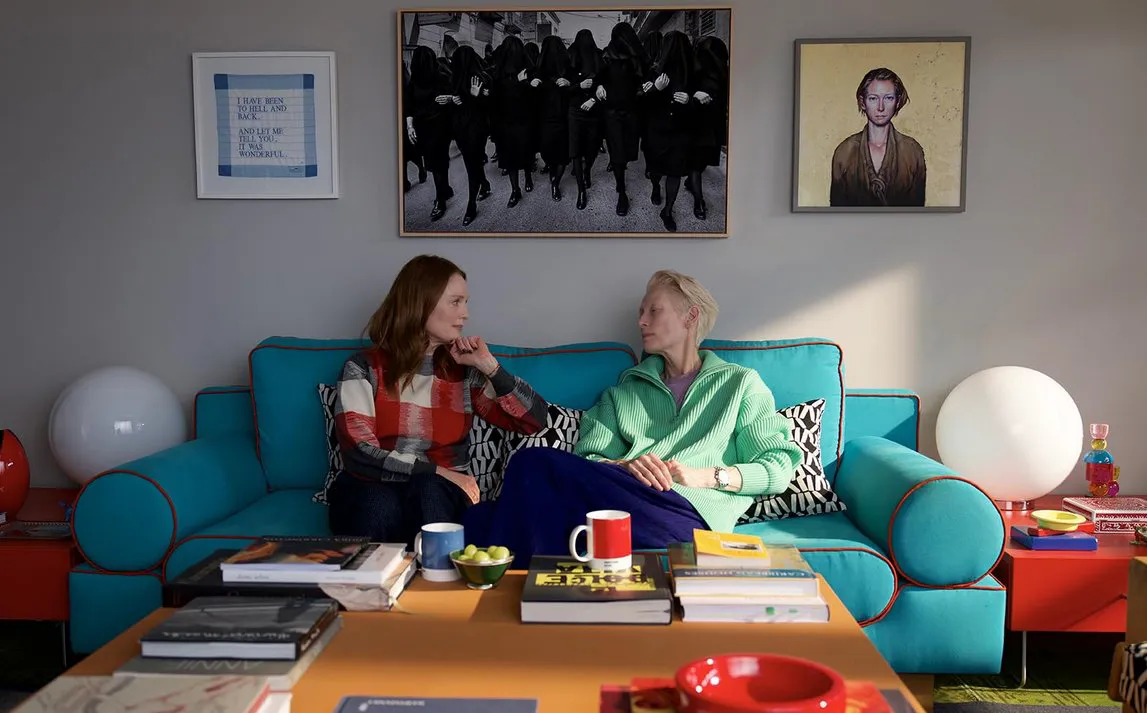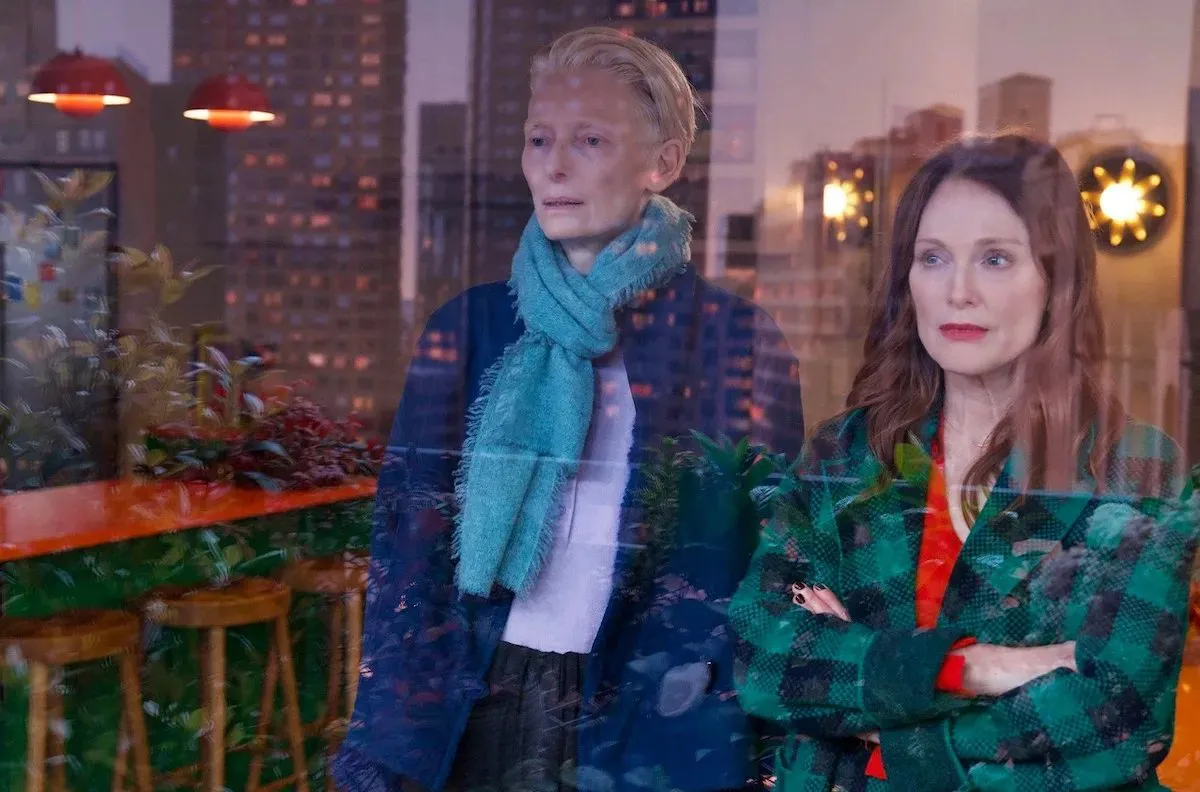World film festivals, almost unconsciously, yet with unwavering persistence, chronicle the metamorphoses of renowned masters’ signature styles from year to year. Films by great (or once great?) filmmakers consistently find their way into the main competitions of Venice, Cannes, and Berlin, sometimes sparking less than complimentary discussions about directorial retirement and the fading of creative spirit. More often than not, it is the brilliant revolutionaries of youth who, in their twilight years, evoke more human sympathy than audience enthusiasm. The Spanish director Pedro Almodóvar seems to have conquered the passage of time and the grim dictates of stereotypes: one period in his filmography gives way to another, methods and themes for reflection transform, but each time Almodóvar’s films are harmonious, organic, and sincere in what and how he films.
A Delicate Dance with Mortality: Almodóvar’s “The Room Next Door”

Tilda Swinton as Martha in a still from “The Room Next Door”
“The Room Next Door” is a deceptively simple, compact film, seemingly detached in its timid sorrow. Death is inevitable: Martha (Tilda Swinton) has stared death in the face her entire life, and therefore is not so afraid of the final encounter with an old acquaintance. The woman worked as a war correspondent, and now she herself seems to have become the subject of a report on fading away – cancer relentlessly spreads through her weakening body, and chemotherapy does not hold back the onslaught. She asks an old friend, with whom paths diverged mid-sentence, to share the ritual of farewell, and now, by chance (although with Almodóvar, more likely fate), they meet again at one point. Ingrid (Julianne Moore) has just given a presentation of her book dedicated to death, but is hardly ready to move from theoretical understanding to practical support for the dying woman. And yet, she decides not to leave her close friend alone.

Julianne Moore as Ingrid in a still from “The Room Next Door”
The synopsis doesn’t so much deceive as it obviously refers to many heartbreaking dramas about how merciless disease is to both its victims and their loved ones in the final act. Almodóvar has “buried” his heroines more than once (“Talk to Her”), and even brought some back from the dead (“Volver”), but never before has the director been so sadly calm. Martha herself decides to leave: euthanasia is illegal in the States, and therefore voluntary death is not only a rite, but also a criminal act; the pill for immortality can only be found on the Darknet. The script is partially based on the book “What Are You Going Through” by the American writer Sigrid Nunez: the film adaptation became Pedro Almodóvar’s first full-length film in English – before that, the director only “translated” the short films “Strange Way of Life” and “The Human Voice.” The motivation for changing scenery and linguistics could be not only the search for new landscapes for expression, but also the legal field: euthanasia is only allowed in some states, while in Spain it is a legal procedure.
Finding Peace in Distant Lands
The parallel may seem excessive and even far-fetched, but it is difficult to do without a beautiful rhyme in the text. Martha decides to spend her life not at home, where familiar anchors force her to stay, but in a new, beautiful place, where nothing is filled with joyful memories, but only provides an opportunity to gain new ones for the last time. A small house in nature near Woodstock is the dying woman’s last refuge. Like Martha, Almodóvar chooses a land far from his native one for a noble farewell, but the director is not going anywhere – he remains the one seeing them off on the platform, like Ingrid.

Julianne Moore, Pedro Almodóvar, and Tilda Swinton
A Quiet Farewell
The growing unity, understanding, respect, and acceptance of the friends touch deeply without the help of excessive drama. Almodóvar, with his characteristic delicacy and sensitivity to female images, creates patterns of destinies practically out of nothing – only a couple of eccentric flashbacks come to the rescue. Occasionally, Martha and Ingrid’s solitude is interrupted by random guests from the outside – like an old lover (John Turturro) of each in turn, or an overly active trainer in the gym. It is difficult to get rid of the feeling that if Julianne Moore and Tilda Swinton had sat on the sofa in the living room for the entire duration, the film would still have come together and left an imprint of melancholy and some annoying helplessness. Helplessness not only in the face of one’s own death, which may not be an unambiguous defeat, but also an act of truly humanistic nature, but also in the face of the fading of all things.
In New York and Woodstock, fluffy and gentle snow falls in April, and the sky is covered with a pink haze: beauty that defies the climatic habits of the earth – a miracle foreshadowing the end, a timid greeting from inevitable global warming. We hardly have the opportunity to figure out how to end everything correctly; all that remains is to see off, meet, quote James Joyce, and wait in the room next door.